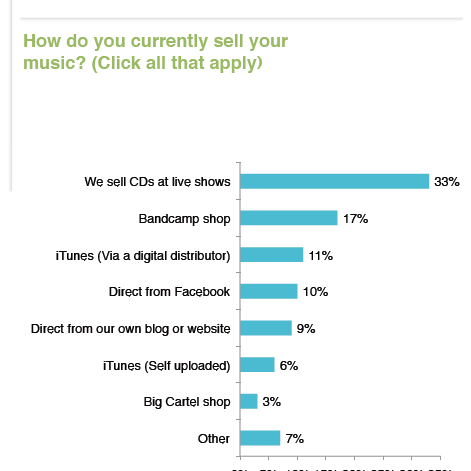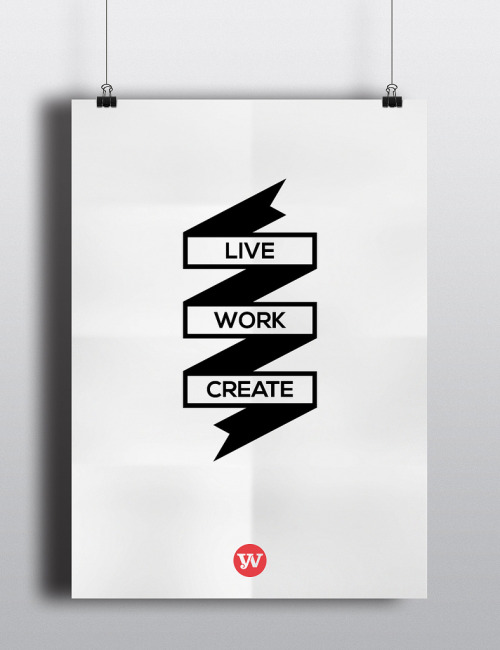The Official Funky Management Blog Based in the Washington, DC Metropolitan area, we are an artist management and representation company dedicated to discovering, developing and delivering exceptional talent to the world.
407 posts
Band Managers Dont Exactly Have It Easy. Theyll Typically Book The Shows, Do The Accounts, Negotiate
Band managers don’t exactly have it easy. They’ll typically book the shows, do the accounts, negotiate deals, promote the band, manage the merch, and provide a legal foundation for the band. In short, they’re a jack of all trades, and in this post we’re going to look through a few tools that can make a few of the tedious management tasks a bit easier.
#1 A tablet / good smartphone
With so much travelling around and going between meetings, a tablet is a handy investment for any manager. Not only does it mean you don’t have to lug around a hefty laptop, but it makes your journey time a little bit more productive, as you can quickly edit contracts on the bus, or post social network updates on behalf of the band.
I’d also advise that if you’re going to do anything copy-heavy e.g. writing blog posts, editing contracts, updating the band website, that you get yourself a tablet keyboard case, as they’re great for speeding things up.
#2 A good lawyer & a set of contracts for every situation
As a manager, you’re likely going to have to negotiate a number of deals for the artist you’re working with. Many larger organisations in the music industry have exceptional in-house legal teams who can make your life very difficult if you don’t know what you’re doing. Find yourself a brilliant lawyer, and get a set of music contract templates so that you know what a standard agreement should look like, and why the deal you’re negotiating differs.
#3 Use SaaS (software as a system) tools to save you time
Nowadays, there are so many SaaS platforms to save you time in every aspect of your career. Whether you use accounting software like Freshbooks, CRM software, or even music-specific platforms like Dizzyjam to print and manage your merch, SaaS can be a great way of cutting down the time you spend on tedious jobs, so you can free it up for the important stuff.
#4 Contacts, contacts, contacts
When it comes to management, who you know is important. Invest your time networking at music industry conferences to develop your network of contacts – you never know when you might need them.
#5 A Blog
In my experience, blogging is invaluable – yet it’s impossible to predict why in foresight. I no of no blogger who hasn’t seen the value in blogging, and yet few of the bloggers I know could have predicted why it’d become invaluable to them. Because of this blog, I’ve had my content featured in the Singapore music education syllabus, I’ve met countless friends around the globe, who have also become important contacts. Blogging is an excellent way of reaching more of the people you want to meet – whether that’s for you as a manager, or for the band that you manage.
More Posts from Funkymgmt-blog-blog
Back in June Right Chord Music launched The Big Survey in association with Farida Guitars. Our aim was to better understand the realities of being a musician in 2013. The online survey was completed by 200 musicians, of which three-quarters were unsigned or independent. Two-thirds of the respondents reported they had released at least one single. The vast majority of respondents came from three countries: UK, Australia, and the USA.
Results highlight the increasing number of sites and services used by artists to promote their music. It’s no surprise that Facebook dominates, but it’s interesting to see the growing importance of Soundcloud and Bandcamp and the much heralded fall from grace of Myspace.
Just over one-half of the respondents reported paid live shows were the primary source of their monthly income. Digital download sales (13%) and CD sales (12%) were second and third respectively. Over six different incomes streams were reported. Although average incomes from live shows were not captured in this survey Right Chord Music would expect income from live shows at this level to be between £20-£50 per show, and a band to be playing a maximum of three paid shows within an average month. It’s clear once income is divided up between 3-4 band members and petrol, parking, hire, and rehearsal costs are factored in, income does not necessarily mean profit.
Bedroom and DIY culture is very much alive and kicking, with just under one-half (49%) of respondents reporting they record all of their music at home. Twenty-eight percent (28%) reported they record demos at home before heading to a professional studio to add a professional touch to their work.
To professionally promote music costs money, Right Chord Music estimates between £300-500 for online PR, and £600-£850 for radio plugging for a minimum of two months. Then there is press and TV, the cost continues to rise. Based on these costs, and their unsigned status, it is no surprise that the vast majority (87%) of respondents in this survey reported they have to promote their music themselves.
Respondents reported over seven different ways they sell their music, with selling CDs at live shows remaining the most popular sales channel. Bandcamp’s growing influence among the unsigned community is clear with as many respondents reporting they use Bandcamp as iTunes to sell their music. Ten percent (10%) of respondents reported they sell their music directly from Facebook.
When respondents were asked to highlight the biggest challenges they face as musicians two dominated: ‘Getting our music heard’ and ‘Making enough money.’ But equally noticeable is the large number of challenges they recognise and struggle to overcome. It is certainly not easy to be a musician in 2013.
To download your FREE copy of the full report visit: http://www.rightchordmusic.co.uk/faridaguitarresults
In an ideal world I would wake up in the morning to a fresh cup of hot coffee. I would enjoy it as I check my e-mail and skim social networks to check up on friends and my favorite bands.
I would immerse myself in an online community of music lovers, songwriters, and musicians sharing, caring, and building with each other… NOT blasting commands to “check out my new hottest thing”.
I see enough billboards on the interstate.
In this world:
Bands would stop acting like rock stars and start acting like leaders
They would build self-sustaining tribes
They would listen to their fans
They would understand that growing organically will always win over view counts
As a music blogger, my inbox would NOT be full of one-liners and YouTube links I only see as distractions. Whatever happened to “connecting” with someone?
Unfortunately, this world does not exist. From where I’m sitting, the average indie band sucks at using social media and its ruining it for everyone else. Most importantly, your potential fans.
What are we doing wrong, you say?
Oh boy…where do I begin?
Me, Me, Me Marketing
You might have been raised in a world of billboards and commercials, but using social media as a one way street is killing your promo game.
It seems too many people are missing the social half of the phrase, social media.
You need to engage with fans and listeners instead of blasting them with links, videos, and nonsense about buying your album.
Sadly, most bands qualify [as what the marketing world refers to] as spammers.
Engaging is easier than you think and should come naturally (assuming you are not a recluse).
Share albums, videos, and news about other music you enjoy or local bands you play with.Ask others what they think.
Share news related to the music industry or issues that reflect the personality of your band and use them to engage in conversation.
Instead of posting links to the same videos and songs repeatedly, post clips of the band working in the studio or upload a demo mix and allow fans to share their opinions so you can take the art to another level. Involve fans in your process(es).
Network with bands in other areas to create an atmosphere for gig swapping and collaboration as well as cross promotion of content.
This list goes on but the takeaway here is engage in a way that results in feedback and interaction.
Build a community.
Focusing on the wrong metrics
Your follower count means nothing unless you see conversions.
Huh?!
More important than a follower, view, or like:
How many fans have signed up for your mailing list?
Do you pass around a mailing list signup sheet at your show?
How many people have you met at shows? (You do hang out with the audience after the show…right?)
How many people have bought a CD or t-shirt?
Stop putting all your energy into increasing numbers on social sites and focus on converting the followers you have into loyal fans.
Use social media to funnel music listeners to your website where you attempt to convert them into a mailing list signup, song download, or merchandise sale.
Would you rather have 1,000 likes or 100 fans spending $1,000 on music, merch, show tickets and crowd funding campaigns?
Show me the money!
Continue Reading
The past 12 months had more great music going on than any year in recent memory. Some of the most innovative artists of the last decade — Kanye West, Daft Punk, Queens of the Stone Age, Vampire Weekend and Arcade Fire — all made watershed albums. Rock & roll greats like John Fogerty, Paul McCartney and David Bowie proved they could be as vital as ever. The EDM explosion kept blowing up thanks to artists like Disclosure and Avicii; old-school titans like Eminem and Pusha T pushed hip-hop forward alongside new-school innovators like Chance the Rapper, Earl Sweatshirt, J. Cole and Danny Brown; Kacey Musgraves and Ashley Monroe made country that was traditional and iconoclastic. But the most exciting news of the year might've been the astonishing number of breakout new artists, from retro-Eighties sister act Haim, to Brit-folk prodigy Jake Bugg, to indie-rockers Parquet Courts, to post-punkers Savages to chart-topping 17-year-old truth-bomber Lorde. Even Miley Cyrus' wrecking ball of an adult-oriented breakout album was kinda awesome. Oh 2013, you gave so much and asked so little; 2014, get crackin'. You've got a lot to live up to.
Continue Reading




